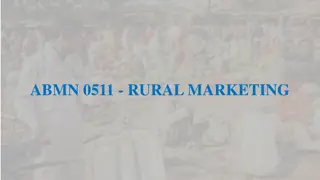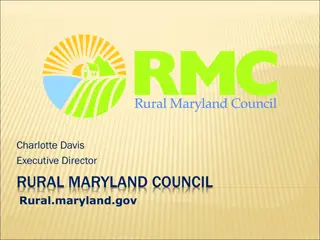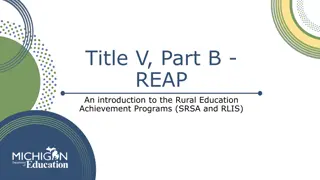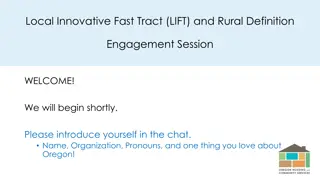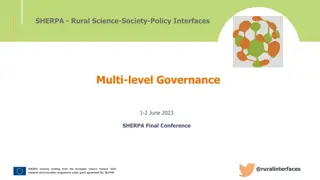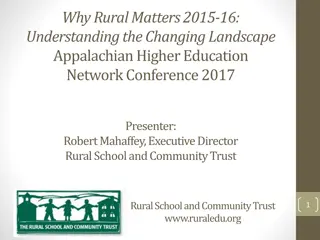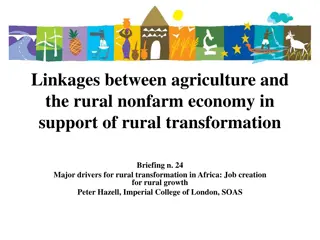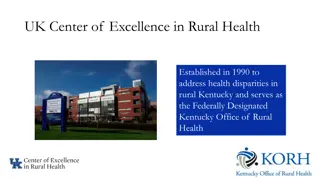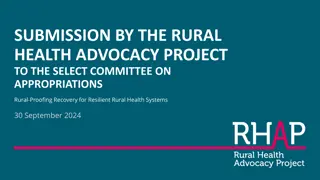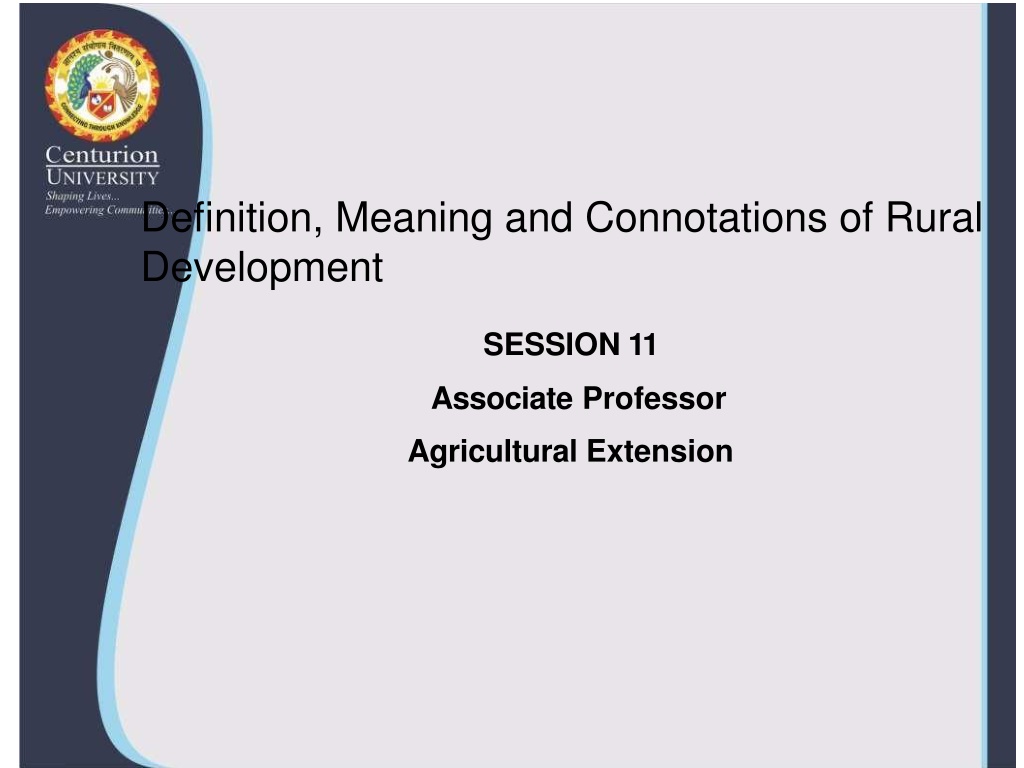
Understanding Rural Development and Its Importance
Explore the concept and significance of rural development in enhancing the quality of life and economic well-being of individuals living in remote areas. Learn about key focus areas, including education, public health, women empowerment, infrastructure development, and more. Discover definitions from the World Bank and Finance Ministry, emphasizing the systematic use of national resources to uplift rural communities.
Download Presentation

Please find below an Image/Link to download the presentation.
The content on the website is provided AS IS for your information and personal use only. It may not be sold, licensed, or shared on other websites without obtaining consent from the author. If you encounter any issues during the download, it is possible that the publisher has removed the file from their server.
You are allowed to download the files provided on this website for personal or commercial use, subject to the condition that they are used lawfully. All files are the property of their respective owners.
The content on the website is provided AS IS for your information and personal use only. It may not be sold, licensed, or shared on other websites without obtaining consent from the author.
E N D
Presentation Transcript
Definition, Meaning and Connotations of Rural Development SESSION 11 Associate Professor Agricultural Extension
Rural Development Rural development usually refers to the method of enhancing the quality of life and financial well-being of individuals, specifically living in populated and remote areas. Traditionally, rural development was centred on the misuse of land-intensive natural resources such as forestry and agriculture. However today, the increasing urbanisation and the change in global production networks have transformed the nature of rural areas.
Rural development still remains the core of the overall development of the country. More than two-third of the country s people are dependent on agriculture for their livelihood, and one-third of rural India is still below the poverty line. Therefore, it is important for the government to be productive and provide enough facilities to upgrade their standard of living.
Rural development is a term that concentrates on the actions taken for the development of rural areas to improve the economy. However, few areas that demand more focused attention and new initiatives are:
Education Public health and Sanitation Women empowerment Infrastructure development (electricity, irrigation, etc.) Facilities for agriculture extension and research Availability of credit Employment opportunities
Definition of Rural Development According to World Bank rural development is a strategy designed to improve the economic and social life of a specific group of people by extending the benefits of development to the poorest among those who seek livelihood in the rural areas. According to Finance Ministry rural development is systematic and integrated use of national resources enabling every person to engage himself in production and social useful occupation and earn income that will meet at least the basic needs.
According development means development of an area and the people through optimum development and utilization of local resources by bringing about necessary institutions, structures and attitudinal changes and by delivering package of services to improve all fields of the rural poor and rural weak. to National Commission on Agriculture rural
Connotation of Rural Development: The term rural development connotes overall development of rural areas with a view to improve the quality of life of rural people. In this sense, it is a comprehensive and multidimensional concept, and encompasses the development of agriculture and allied activities, village and cottage industries and crafts, socio-economic infrastructure, community services and facilities, and, above all, the human resources in rural areas
As a phenomenon, rural development is the end-result of interactions between various physical, technological, economic, socio-cultural and institutional factors. As a strategy, it is designed to improve the economic and social well-being of a specific group of people the rural poor. As a discipline, it is multi-disciplinary in nature, representing an intersection of agricultural, social, behavioural, engineering and management sciences.
Rural Development Policies and Strategies 1. Growth Oriented Strategy: This is based on the philosophy that rural people, like any other people, are rational decision makers. Who when given adequate opportunity and a proper environment, will try to maximise their incomes the role of the state in this strategy is to build infrastructure, and maintain a favourable climate to stimulate the growth of rural of rural enterprises.
Welfare Oriented Strategy This seeks to promote the well-being of the rural population in general, and the rural poor in particular, through large scale social programmes like the Minimum Needs Programme, Applied Nutrition Programme, Mid-day Meals programme, etc. the primary means used in this strategy are free provisions / distribution of goods, services and civic amenities in rural areas.
Responsive Strategy This is aimed at helping rural people help themselves through their own organizations and other support systems. Its concern is with responding to the felt needs of the rural people, as defined by them. The role of the government is to facilate the self-help efforts of villagers by providing technologies and resources that are not locally available.


